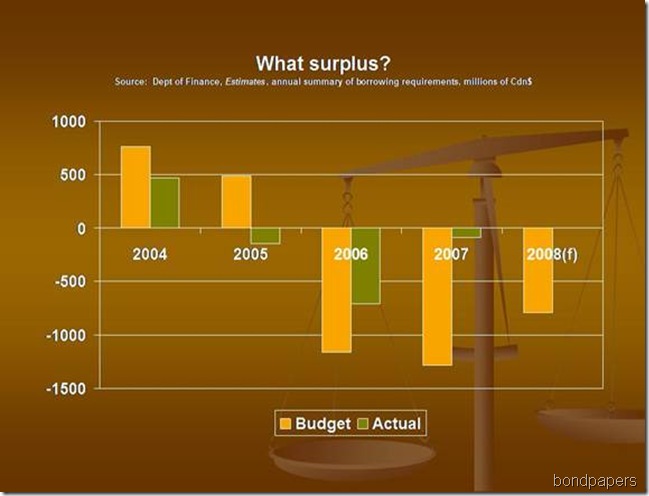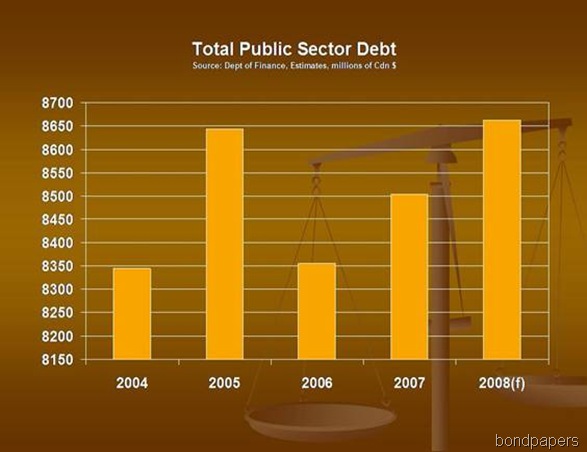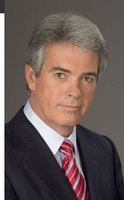[revised 05 Sept 09]
Justice minister Jerome Kennedy referred to it.
Bill Rowe - former Smallwood era cabinet minister, the first Man in a Blue Line Cab and current talk show host at voice of the cabinet minister - tossed out the supposed refusal by the Government of Canada in the 1960s to grant poor, beleaguered Newfoundland a power corridor through Quebec back in the 1960s. In a conversation with some caller from Ontario, Rowe used the corridor story as an example of one of the Grievances Against Ottawa.
They are factual or based on facts, Rowe insisted, or words to that effect.
Well, there are facts. That is things which have been established to be true and accurate based on research and evidence.
And then there is stuff that isn't factual.
Like the myth of the power corridor and the refusal.
The only - that's right the only - publicly available account of the issue available appears to be a research paper by Jason Churchill for the Vic Young Royal Commission several years ago. Odds are good most of the people running around telling the facts haven't read Churchill's account, which is, it should be noted, based on considerable research.
Churchill argues that "the Quebec negotiators were aided by successive federal governments that both actively and passively failed to enact legislative measures which would have granted Newfoundland and Labrador unfettered access to the North American energy markets."
In making that statement, though, Churchill notes that at the time - chiefly 1964-1966 - the Government of Canada lacked any coherent national electricity policy. As such it is difficult to lay blame or responsibility for subsequent events solely at the feet of the federal government. Incidentally, Churchill's source on the lack of a coherent policy is no less an authority than John Crosbie saying exactly that.
The Diefenbaker administration proposed a national electricity grid in 1962. Quebec - and Newfoundland - opposed the idea as being solely within the sphere of provincial sovereignty under the constitution.
For his part - as Churchill notes - Smallwood preferred to develop Churchill Falls through the privately-owned BRINCO and quite evidently with Quebec as the partner. Smallwood wasn't prepared to have the federal government take control of a provincial area of responsibility.
However, "[f]ormer provincial and federal cabinet minister John Crosbie stated that when Smallwood rejected Levesque’s nationalisation offer, 'a golden opportunity disappeared'. The argument being that had the project been jointly developed, the subsequent profits would have also been shared equitably [between Newfoundland and Quebec]."
At this point in the narrative, though it is worth quoting Churchill's account in it's entirety. His version is succinct even though the issues are complex. Incidentally, the numbers in the text refer to footnotes in the original.
In the summer of 1965, the previous question of nationalisation of BRINCO was solved for Levesque by the federal government. Despite Smallwood’s refusal to nationalize BRINCO, a cheaper mill rate was secured for Hydro-Quebec when the Public Utilities Income [Tax Transfer] Act was changed. There was a 50 per cent to 95 per cent increase in the transfer to the provinces of taxes collected from utility companies. Newfoundland and Labrador passed the additional savings on to BRINCO which consequently allowed the Corporation to sell electricity to Hydro-Quebec at a reduced price.(31)
This federal action did not improve Newfoundland’s disadvantaged bargaining position. In 1966, a frustrated Smallwood lashed out and threatened to bypass the Quebec government and appeal directly to Prime Minister Lester Pearson to declare the Churchill Falls project to be in the national interest. Smallwood drafted a letter for the Prime Minister formally requesting:
the Government of Canada to invoke Paragraph (c) of Clause 10 of Section 92 of the British North America Act. If the Government of Canada would proceed forthwith to build a transmission line from Churchill Falls to a point where it would tie in with power grids in Eastern Canada it would ensure an immediate start on the construction of the Churchill Falls power project itself. In that case the power would be in production and available to consumers in Canada in 1971. (32)
This declaration would have enabled the federal government to transcend provincial jurisdiction.(33) Theoretically, this would have allowed for the construction of transmission lines through Quebec and directly to the markets [elsewhere] in Canada and the New England states. However, based on available evidence, it does not appear that the request was ever formally presented.
Former BRINCO President, Henry Borden, claimed that he and associates convinced Smallwood to defer making the request until news of Quebec’s response to a proposal was received. The positive response from Quebec in October 1966 made Smallwood’s request irrelevant. Another explanation given by former Smallwood cabinet minister and long-time friend, Frederick Rowe, argued that fears of Quebec nationalist terrorism was enough to dissuade Smallwood from proceeding. (34)
Of the various explanations presented, the one most relevant to the potential role of the federal government was related by Newfoundland and Labrador lawyer, Cabot Martin, who had interviewed Smallwood. Martin was told the Premier met Pearson personally to discuss the option but was rejected before he could formally present the request. Smallwood stated:
Mr. Pearson said, ‘Joe, I know why you are here and if you ask me I’ll have to say yes, otherwise we would not really be a country. But I’m asking you not to ask me because we will not be able to keep the towers up.’ Joey paused, then looked at me as if to ask ‘What would you have done?’ and said ‘So I didn’t ask him.’35
There are two major implications of the stories related above. The first is that Newfoundland’s interest was set-aside in the name of national unity and due to fears of nationalist violence in Quebec. If this is so, subsequent ramifications of the eventual 1969 contract illustrate that the province has paid, and continues to pay, a phenomenal price for its contribution to national unity. The second implication is that the ultimate power to make the request still resided with Smallwood who appeared to have the option of pressing the issue further. It was Smallwood who decided to either wait for a Quebec response, and/or not ask Pearson due to fears of the consequences of his request to have the project declared in the national interest.
When Smallwood did not press the issue of establishing a power corridor through Quebec, the province failed to achieve a stronger bargaining position for BRINCO with Hydro-Quebec. Despite the difficulties inherent in negotiating at a disadvantaged position, a Letter of Intent was signed in October 1966 which allowed construction to begin at the Churchill Falls site.(36)
In his account, Churchill does not make plain how the entire situation can be laid solely at the feet of the federal government.
The matter is, in fact, considerably more complex. Churchill shows in several key places, for example, where decisions taken by Smallwood and others facilitated the bargaining position subsequently taken by Quebec.
Moreover, while Churchill includes original documentary evidence for some of the discussion, his only source for the Pearson refusal is a 1996 article by former Peckford era policy advisor Cabot Martin published six years after Smallwood died and some 15 years after Smallwood had suffered a debilitating stroke.
Smallwood's memoir, I chose Canada, contains a reference (pp.466-467) to such a request. The account notes that Smallwood had lunch with J.W. Pickersgill and John Turner and discussed the request for the Government of Canada to declare the project of national importance under section 92 of the constitution.
There is no reference whatsoever to any discussion with Pearson at that point, September 12, 1966. Smallwood inserts in his memoir - essentially extracts from his desk diary for the period - a discussion of the potential problems with a corridor through Quebec, including safety from attacks by terrorists and it is at that point he makes a comment quoted by Churchill in his footnotes the value of the national designation. Smallwood makes an additional comment, which Churchill did not use, which may give a clue to Smallwood's own preference in bargaining with Quebec:
The threat might, however, be more effectual than reality. It was much like our repeated threat to nationalize (BRINCO).
The letter to which Churchill refers was drafted on September 29 and, as Churchill notes, appears to have gone unsent. In other words, the power corridor idea appears to have been a bargaining ploy by Smallwood.
None of this means that Cabot Martin's account of what Smallwood supposedly told him later in life is wrong or false either. By the time Smallwood and Martin spoke, details of the disastrous 1969 deal had already become part of the provincial political culture as the symbol of resource give-aways. Smallwood may well have mis-remembered events almost two decades earlier for any of a number of understandable reasons.
For example, it would be far better to blame Ottawa - an old provincial politician's trick - or leave the impression, as Churchill suggests as one possible explanation, that Smallwood made the only decision he could in order to save the nation. Subsequent events notwithstanding, Smallwood was not prepared to risk the country he'd chosen for what he had described in his memoir as a risky proposition in the first place. Smallwood's account turns a failed bargaining ploy and its ignoble consequences into the noble self-sacrifice of a statesman and, by extension, his beleaguered people.
No matter how one looks at it, the available evidence does not support the claim, no matter how much the story is handed around, that the federal government refused a demand to invoke a constitutional provision and force a power corridor through Quebec.
The power corridor story has become, like the entire Churchill Falls saga, nothing more than a convenient story to be trotted out by politicians past and present when it suits their purposes.
The story, however, is no more factual than any other fairy tale.
-srbp-
 But that isn't the official budget of the provincial government approved in the House of Assembly any more than all the talk by politicians about surpluses the past few years was accurate either.
But that isn't the official budget of the provincial government approved in the House of Assembly any more than all the talk by politicians about surpluses the past few years was accurate either. At the same time, very little attention has been paid to paying down the large amount of debt - the accumulated deficits - that now runs upwards of $8.5 billion and is expected to climb higher this year.
At the same time, very little attention has been paid to paying down the large amount of debt - the accumulated deficits - that now runs upwards of $8.5 billion and is expected to climb higher this year. at's that?
at's that?